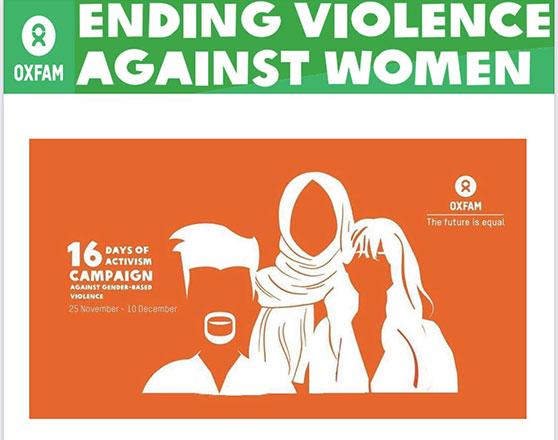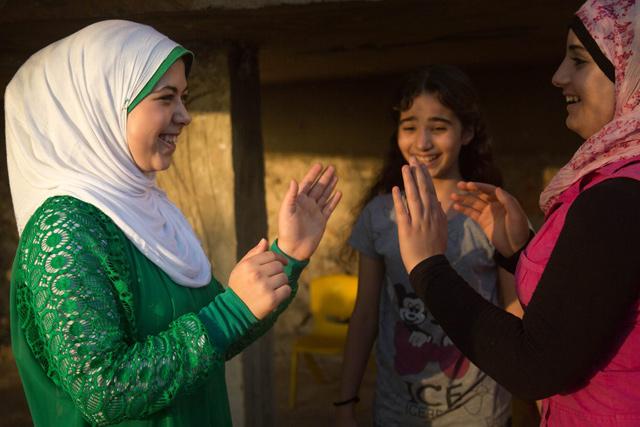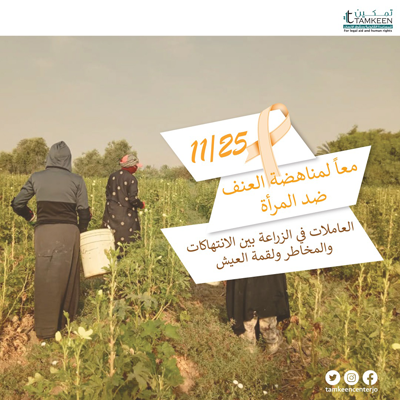You are here
Gender-based violence coverage critical for societal change — report
By Batool Ghaith - Jan 08,2022 - Last updated at Jan 08,2022

AMMAN — The media today faces multiple challenges when covering issues related to gender-based violence, according to the Gender-Based Violence and The Media joint report by Oxfam and Zeyam Research Centre.
The most prominent challenges include: Difficulty reaching the victim, difficulty verifying the credibility of the news, the fear of social stigma, and the psychological impact on the victim.
The report also said that domestic violence against women has increased during the pandemic. The numbers of family murders against females has risen to 17 since the beginning of 2020, according to figures from multiple civil society institutions in Jordan.
The Family Protection Department announced a 33 per cent increase in domestic violence cases during the lockdown period, compared with the same period in 2019.
The report indicated that the number of domestic violence cases the Social Service offices handled in the Family Protection Department during the months of March, April, and May of 2020 reached 1,685 cases: 932 cases involving adult women and 753 cases involving children.
Shelter care homes also received around 104 women and children survivors of domestic violence during the lockdown period alone.
Other challenges the media faces when covering gender-based violence are the insufficient number of journalists specialised in issues related to gender and gender-based violence, the lack of knowledge of gender-related issues in a scientific manner, the lack of consideration of societal sensitivities that may be caused by some terminology (such as using the term honour crime instead of a domestic crime), and the societal demonisation of female journalists covering issues related to gender and gender-based violence, the report said.
Director of Zeyam Research Centre Roman Haddad told The Jordan Times that media organisations’ interest in covering gender-based violence helps spread awareness about the issue, especially among young groups.
“This helps us build a society for the future that rejects the idea of gender-based violence,” Haddad said.
He noted that the more women see that there is media coverage of gender-based violence, the more victims will speak about what they have been through.
“Therefore, the issue turns from a black box to real numbers, which makes it a solid issue that requires clear and strict legislation to help solve it, in addition to the awareness which will reduce the incidence of it,” Haddad continued.
According to Haddad, there is not enough societal awareness regarding gender-based violence to change the social behaviour.
“The law helps to reduce these crimes, but the society’s environment must be fertile and open to understanding and change, and here comes the role of the media,” he added.
Board Member of the Jordan Press Association Khaled Qudah said that the best way to reach a solution for gender-based violence is “not to deny its existence and to search for its causes”.
“Unfortunately, women are exposed to gender-based violence everywhere, whether at work or at home… This phenomenon has become a part of their lives, which makes it very dangerous,” Qudah told The Jordan Times.
Qudah noted that journalists and female journalists in particular are always exposed to problems when covering such issues. He indicated that female journalists face gender-based violence regularly in the field.
“It is very important for the journalist to be aware and to understand how to work with the victim when interviewing her first and secondly when presenting the story. The journalist must be careful not to put the blame on the victim, which is a very important point, and to take care of the victim and convey her story as it was told, and not to disregard any details,” Qudah added.
He emphasised that journalists must preserve the victim's privacy and not disclose any personal information.
He noted that the journalist must be careful choosing their words and not making the victim re-live the incident during the conversation.
Qudah recommended that journalists receive intensive training due to the sensitivity of the topic.
According to the report, media coverage of issues related to gender-based violence can be improved through increasing awareness among the press and media workers, involving more men in issues of gender and gender-based violence coverage, enhancing the professionalism, transparency, and credibility of news reporting, establishing a media corner specialised in gender issues and gender-based violence and enhancing the professional, transparent, and credible standards of news coverage.
Related Articles
AMMAN — Given the rise in the risk of violence against women and girls during the COVID-19 pandemic and the importance of ensuring accurate,
AMMAN – The colour orange, which denotes optimism, inspiration and the rejuvenation of the spirit, will be the emblem of activities held in
AMMAN — The Jordanian non-profit organisation Tamkeen for Legal Aid and Human Rights (Tamkeen), launched an awareness campaign highlighting

















